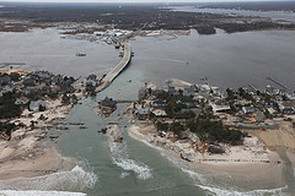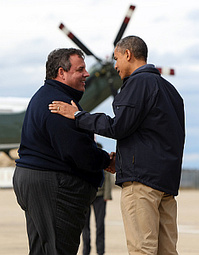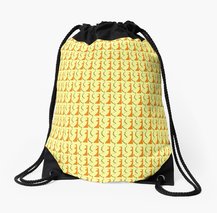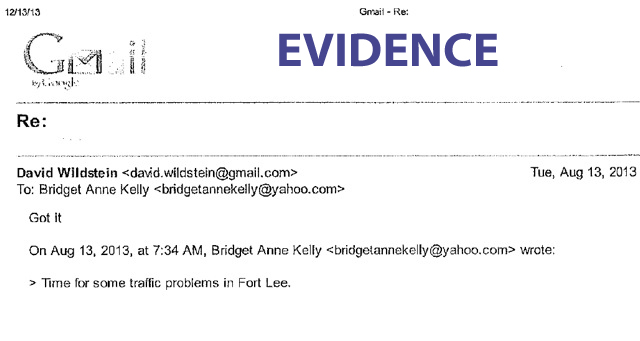-- History - Chris Christie
* Native Americans * Exploration and Settlement * British colony
* Royal governance * Path to Revolution * Revolutionary War
* Industrialization * Civil War * Post-War Economy & Reform
* Woodrow Wilson as Governor * World War I & 1920s * Great Depression
* World War II * Post-War Development * 1960s & Richard Hughes
* 1970s & Income tax * 1990s-Whitman & Florio * 9/11 & McGreevey Administration
* Codey & Corzine * Chris Christie
* Phil Murphy
|
* Home
* History * Population * Government * Politics * Lobbyists * Taxes * State Symbols * Biographies * Economy * Employers * Real Estate * Education * Recreation * Restaurants * Hotels * Health * Environment * Stadiums/Teams * Theaters * Historic Villages * Historic homes * Battlefields/Military * Lighthouses * Art Museums * History Museums * Wildlife * Climate * Zoos/Aquariums * Beaches * National Parks * State Parks * Amusement Parks * Waterparks * Swimming holes * Arboretums More... * Gallery of images and videos * Fast Facts on key topics * Timeline of dates and events * Anthology of quotes, comments and jokes * Links to other resources |
-- Chris Christie election of 2009 During his four years in office, Governor Jon Corzine had seen his popularity decline over his failures to gain support for his controversial proposal to privatize the New Jersey Turnpike and to enact a budget, which led to a partial shutdown of the state government. Democratic officials also complained of a lack of communication with the governor's office and concern for their own priorities. When Corzine sought re-election in 2009, he was defeated by Republican Christopher Christie, a former US Attorney who had gained attention for high-profile political corruption prosecutions. Christie won with 48.5% of the vote to Corzine's 44.9%, with 5.8% of the vote going to independent candidate Christopher Daggett, a former Republican who served in the administration of Governor Thomas Kean. Following his inauguration, Christie signed legislation to limit annual property tax growth to 2% and placed limits on school spending, including capping salaries of school district superintendents. He also negotiated an agreement with the Democratic leadership of the legislature to increase contributions to finance the future liability from state government employee pensions in return for sharp cuts in employee benefits for newly-hired employees and increased contributions from present employees. While Christie kept his campaign pledge not to raise taxes, he reduced or restricted eligibility for a variety of tax credits, including the popular property tax homestead rebate program. Christie's record during his first two years in office, as well as his brash style, generated substantial support from national Republican leaders encouraging him to become a presidential candidate in 2012. After several meetings, Christie announced he would not enter the race and endorsed Mitt Romney, the eventual nominee opposing President Obama for re-election. In the week before the election, Christie was harshly criticized by many Republican activists when he greeted the President with a hug upon Obama's visit to the state to assess the damage from Hurricane Sandy. -- .Hurricane Sandy
Hurricane Sandy, which came ashore near Brigantine on October 29, 2012, inflicted the most property damage in the state's history. While its winds upon landfall were estimated at only 80 miles per hour, the hurricane coincided with a storm surge exacerbated by a lunar high tide that generated extensive flooding. Every home in the borough of Mantoloking was damaged, with some washed from their foundations as the waters of Barnegat Bay carved a breach in the peninsula normally separating the bay from the Atlantic. Hoboken and other Hudson River communities also were flooded, requiring several emergency rescues and evacuations.
-- Christie re-election 2013 Christie was easily re-elected in November 2013 by a 60.5% to 38% margin over Democrat Barbara Buono. Post-election surveys also showed his support to include high levels of votes from traditionally Democratic constituencies, including African Americans and Hispanics, compared to past New Jersey Republican candidates. But the Governor's campaign tactics in trying to ensure the largest possible landslide increasingly came under question. In order to avoid sharing the ballot with Newark Mayor Cory Booker, who was seeking election to fill the seat of the late Senator Frank Lautenberg, the Governor ordered a special election be held, thus avoiding on his own election day the anticipated high African American and predominantly Democratic voter turnout that tended to vote Democratic. -- "Bridgegate" While it did not receive wide attention at the time, in the September before the November election two of the three traffic lanes in Fort Lee normally open to access the George Washington Bridge and New York City were closed for five days, resulting in major traffic backups. It was subsequently disclosed that the lane closures took place after Bridget Anne Kelly, a deputy chief of staff for Christie, sent an e-mail to David Wildstein, a high-level Christie appointee at the Port Authority of New York and New Jersey which stated: "Time for some traffic problems in Fort Lee." Later investigations suggested that the lane closings may have been retribution for the refusal of the Democratic Mayor of Fort Lee to endorse Christie's re-election. Christie denied prior knowledge of the closures, and fired Kelly and William Stepien, his former campaign manager who reportedly had advance notice of the plan. Wildstein and Bill Baroni, a former state senator whom Christie had named as the deputy executive director of the Port Authority and who testified that the lane closures were part of a "traffic study," also resigned. Following an investigation by the US Attorney, in May 2015 Wildstein entered a guilty plea to federal conspiracy charges and Kelly and Baroni pleaded not guilty to other federal charges relating to the closures. After requests for delays were submitted, the trials of Kelly and Baroni were held and they were convicted on all counts on November 3, 2016. At the trial, Governor Christie's assertion that he had nor learned of the lane closures until weeks after they occurred was rebutted in testimony by the defendants and Wildstein, |

|
|
Shortly after his re-election, Christie was elected as chairman of the Republican Governors Association. He used the position to raise record funds for the organization's support of gubernatorial campaigns across the country, and also traveled widely, making contacts in other states with key contributors and political leaders. In May 2014, Christie cut the contributions to New Jersey public workers' pension funds for a 14-month period by nearly $2.5 billion to deal with a $2.75 billion revenue shortfall in the state budget. The action broke a commitment Christie had made when he signed legislation to increase state contributions to the pension fund in return for concessions hiking payments by state employees for their pension and health care benefits. Lawsuits were promptly filed by state employee unions challenging the action, but the state Supreme Court held in June 2015 that the prior legislation was unconstitutional through its attempt to bind future legislatures. |
|
-- Presidential campaign
In July 2015, the Governor announced that he was a candidate for the 2016 Republican presidential nomination. In contrast to the position he had attained during his first term, however, he found his popularity, both within the state and nationally, at sharply lower levels. Much of his support had eroded due to questions over the Bridgegate scandal; his reversal on his pension funding commitments; repeated downgrades of the state's credit rating; the state's lagging economic performance; and complaints over the delays in reimbursing losses from Hurricane Sandy. Christie's assertiveness, once one of his strengths, also drew criticism as result of highly-publicized confrontations with his critics. In the first months of the campaign, Christie's standing in national polls remained among the lower-ranking GOP candidates, but his prospects improved following his endorsement in November 2015 by New Hampshire's leading newspaper, the Union Leader, along with other key political figures in that state in the February 2016 primary election. Shortly before the election, Christie also engaged in an exchange with Senator Marco Rubio during a debate among the Republican candidates in which his attacks on Rubio as being rehearsed and robotic were widely cited as severely damaging Rubio's prospects. But Christie's disappointing sixth-place finish in New Hampshire led to his withdrawal from the campaign, which was soon followed by his surprising endorsement of the GOP front-runner, Donald Trump, who later became the presumptive nominee when his remaining opponents suspended their campaigns after the May primaries, The Trump endorsement led to a further decline in the Governor's approval rating to below 30% in polls, as well as editorials by the six Gannett-owned New Jersey newspapers and the Star-Ledger calling for his resignation. Christie's backing of Trump, as well as his refusal to criticize some of Trump's more extreme statements, led to a rash of comedians, political cartoonists, analysts and others parodying his loyalty.
Christie was named by Trump to head his transition process once elected in November, and the Governor was identified by Trump as one of the final three of his choices--along with former House Speaker Newt Gingrich and Indiana Governor Mike Pence--to run as the vice presidential nominee. On July 16, however, Trump announced that he had selected Indiana Governor Pence as his running mate over Christie and Gingrich. After his election, Trump also announced that he was naming Pence to replace Christie as head of his transition, and allies of Christie on the staff of the transition task force, including his former Chief of Staff Richard Bagger, also were removed. Subsequent reports disclosed that Christie had requested to be named by Trump as Attorney General, an appointment which went to Alabama Senator Jeff Sessions. Christie also reportedly sought the chairmanship of the Republican National Committee, but lost out to Michigan Republican Chairwoman Ronna Romney McDaniel, a niece of Mitt Romney. Christie then stated that he "had no reason to believe" that he would join the Trump administration, and that he expected to remain as governor until he completed his term in January 2018. He also subsequently stated that he had been offered positions in the new Trump Administration, but had declined due to the reluctance of his wife Mary Pat to relocate to Washington. Other reports, however, suggested that his failure to be named to key role with Trump may have been due to lingering resentment by Jared Kushner, Trump's son-in-law, over the conviction of his father Charles on federal tax evasion, witness tampering and illegal campaign contribution charges brought by Christie's office when he served as US Attorney. One book also suggested that Christie may have lost favor with Trump over his failure to support Trump following the release of the 'Access Hollywood' videotape in which Trump made vulgar remarks about his ability to grope women, with Christie reportedly suggesting at the time that Trump's candidacy was doomed by the scandal and that he should focus on repairing the damage to his 'brand' as a marketer in anticipation of his electoral defeat. In December 2016, Christie provoked more controversy when he unsuccessfully attempted to have the legislature quickly pass legislation to change state law to allow him to be paid to write a book before he left office and also to abolish the mandated publication of legal notices in newspapers--a move that was described in media accounts as his "revenge bill" for unfavorable press coverage. His failure to secure enough votes to pass the bills reflected, according to some analysts, the sharp drop in his approval in public opinion surveys, which in June 2017 fell to a 15% approval rating in the Quinnipiac Poll, the lowest for any governor in the US in the over 20 years since Quinnipiac had begun such polling. Other polls also reported that his approval rating within New Jersey was the lowest for any governor since such polling had been initiated. In the November 2017 gubernatorial election, the 56% to 42% defeat of Kim Guadagno, Christie's lieutenant governor, by Democrat Phil Murphy was cited by most analysts as due in large part to her association with Christie and failure during the campaign to define how she had differed with his policies. After leaving office in January 2018, Christie continued to speak out on political issues, particularly as a panelist on the weekly TV show of ABC News. In January 2019, his book, Let Me Finish: Trump, the Kushners, Bannon, New Jersey and the Power of In-Your-Face Politics was published, in which he attributed much of his divisions from the President and others in the Administration to continuing resentment by Jared Kushner over Christie's prosecution while US Attorney of Kushner's father. In June 2023, Christie announced that he would again be a candidate for president, issuing strong criticism of former President Trump and calling for the Republican Party to seek new leadership. * Native Americans * Exploration and Settlement * British colony * Royal governance * Path to Revolution * Revolutionary War * Industrialization * Civil War * Post-War Economy & Reform * Woodrow Wilson as Governor * World War I & 1920s * Great Depression * World War II * Post-War Development * 1960s & Richard Hughes * 1970s & Income tax * 1990s-Whitman & Florio * 9/11 & McGreevey Administration * Codey & Corzine * Chris Christie * Phil Murphy |



